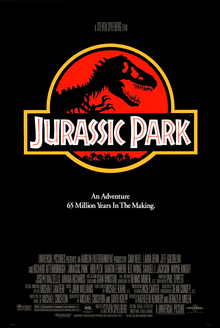Many scientists consider humans as the most invasive species, humans can greatly change and environment and impact the living things that reside there. Are we being stewards of the world? Take a look at an issue in which human intervention has positively or negatively affected the biodiversity of our ecosystems?
As humans we are the most invasive, and destructive species on this planet, and this is solely because we are at the top of the food chain, and when your on top you can't help but beat up and laugh at everyone under you right? All organisms on this planet depend on resources to maintain their existence. As the population rises, the dependency on these resources increase, this consumption of resources; greatly impacts the environment. As humans, we depend on the various resources this planet has to offer, and sometimes we manipulate the environment to help meet our needs. The destruction of forests and the extinctions of various animals can all be attributed to man's need to survive. I read somewhere, that it would take a planet twice the size as earth to provide the same type of standard living we find here in the west.
we took his habitat, now we're taking his bucket.
I saw that a lot of people picked issues that negatively impacted biodiversity; so I decided to find one where our species have had a positive effect on the ecosystem by our intervention. We as humans have seen our impact on ecosystems and have begun changing. There are thousands of wildlife reserves around the world used to preserve the various wildlife, and unique geological features in the land. There are over 200 national nature reserves in the United kingdom, spanning a total area of 879 square kilometeres, nearly every rural county has one. In Egypt, there are 27 nature reserves, representing 12% of the land; used to protect the natural resources, culture and history of the area, Egypt is planning on building another 40 nature reserves from 1997-2017. Germany has an outstanding 5,314 nature reserves scattered around the country coveringa total of 6,845 square kilometres. And lastly, the U.S has the National Wildlife Refuge, used to "to manage a national network of lands and waters for the conservation, management, and where appropriate, restoration of fish, wildlife and plant resources and their habitat." The total amount of land being protected by them is a staggering 388,385 square kilometres. Countries like South Africa, Poland, Russia and New Zealand also contain nature reserves, and soon more countries could follow. The preservation of these various lands, has helped preserve the biodiversity of these ecosystems from human intervention.
Scientists are also begininning to try and clone previously extinct species, Just earlier this year, scientists were able to clone the "Pyrenean Ibex" which went extinct in the year 2000. Sadly the newbon clone diedminutes after birth. Sure, we are manipulating nature, but to re-write previous wrong doings; by introducing a previously extinct species in the wild, it could greatly affect the biodiversity in the ecosystem.
There are many negative impacts humanity has done that negatively affected biodiversity; pollution, de-forestation, extinction of various wildlife and many more. But then you have to keep in mind this was all to help us meet our needs. Pollution happens because it just so happens that the energy we use to heat food, power cars to travel long distances, etc. emits a harmful by-product. So until we find a new way to create energy, that doesn't involve installing million dollar fans or glass panes this is our only way of getting energy.Forests are torn down so it would provide an area where people can build housing for the sudden increase in population countries don't just tear down forests for no reason. Although it might be a sad realization, we can't live amongst animals in harmony, we can't just walk around the forest while singing and dancing with a bear about the importance of friendship.
Sources\Sites Read:
http://redpath-museum.mcgill.ca/Qbp/3.Conservation/impacts.htm
http://en.wikipedia.org/wiki/Ecological_footprint
http://news.nationalgeographic.com/news/2009/02/090210-bucardo-clone.html
http://socyberty.com/issues/human-impact-on-earth/
http://en.wikipedia.org/wiki/United_States_Fish_and_Wildlife_Service
http://en.wikipedia.org/wiki/National_Wildlife_Refuge



